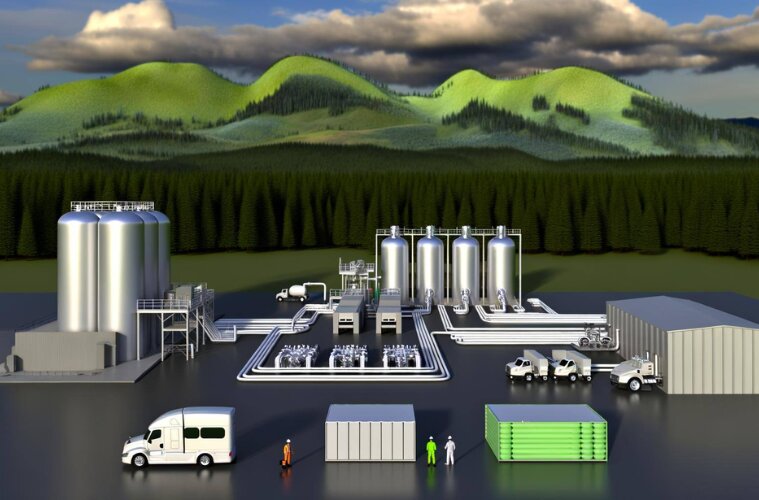Washington's Green Hydrogen Initiative: Paving the Way for Sustainable Energy Growth
Key Ideas
- Washington State's initiative focuses on developing green hydrogen to align with clean energy goals, reducing GHG emissions and supporting industries and communities.
- Green hydrogen offers economic opportunities in transportation, industrial applications, and energy storage, contributing to the state's goal of meeting energy needs with renewable resources by 2045.
- Investments in infrastructure for green hydrogen production and storage facilities are expected to create jobs, boost the state's GDP, and enhance energy grid reliability.
- The initiative emphasizes policy compliance and highlights the importance of collaboration among stakeholders to ensure the success of green hydrogen projects.
Washington State is leading the way in the evaluation and development of green hydrogen energy facilities as part of its commitment to clean energy. The Draft Programmatic Environmental Impact Statement (PEIS) released by the Department of Ecology outlines a roadmap for potential green hydrogen projects across the state. The initiative aims to reduce greenhouse gas emissions by supporting industries and communities with sustainable energy solutions.
The economic implications of green hydrogen are vast, with opportunities for industries like transportation, industrial applications, and energy storage to benefit. The state's Clean Energy Transformation Act mandates a shift to non-emitting and renewable resources by 2045, where green hydrogen can play a crucial role. By 2030, the demand for green hydrogen in Washington is projected to exceed 500,000 metric tons annually.
Investments in green hydrogen infrastructure are expected to attract significant funding and create job opportunities in engineering, construction, and operational management. The synergy between hydrogen facilities and battery energy storage systems enhances energy efficiency and grid reliability, providing backup power during outages.
Policy compliance is a key focus, with the initiative emphasizing adherence to local, state, and federal regulations to achieve net-zero greenhouse gas emissions by 2050. Collaboration among private enterprises, local governments, and regulatory agencies is highlighted as essential for the success of green hydrogen projects. Stakeholders have the opportunity to provide feedback on the draft report during a 30-day public review period, indicating a commitment to transparency and engagement in the development of green hydrogen initiatives.
Topics
Projects
Infrastructure
Sustainability
Job Creation
Green Energy
Economic Development
Collaboration
Policy Compliance
Latest News
